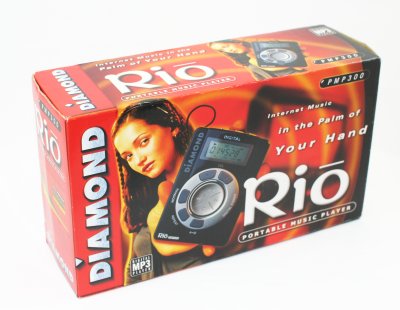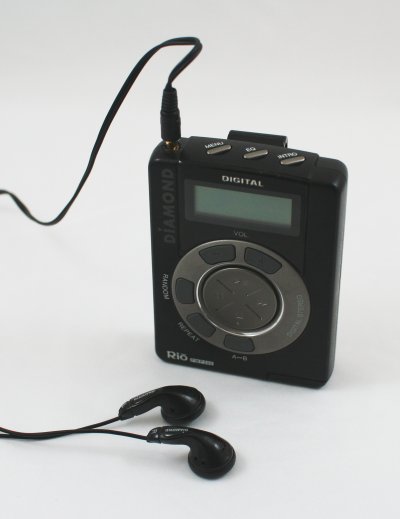| Recording Industry Associaton of America v. Diamond Multimedia Systems, Inc. in the United States Court of Appeals for the Ninth Circuit 180 F.3d 1072 (9th Cir. 1999)
|
|
The record industry fails to stop the MP3 player Debuting in 1998, Diamond Multimedia's Rio PMP 300 was the first commercially successful personal MP3 player in North America. And it was the realization of a long brewing fear of the record industry. With old analog technology, sound recordings lost quality with each successive generation of copying. So if you wanted a high-fidelity copy of a song, you had to buy it from the record company. But with the advent of digital sound recordings, a copy of a copy of a copy would sound just as good as the original. The only problem was, the songs took up an enormous amount of memory. Then along came MP3. This digital format allowed songs to be stored in one-tenth the amount of computer memory formerly required. This breakthrough suddenly allowed perfect copies of songs to be transferred over the internet and downloaded in minutes. The pocket-size Rio player then offered the ability to take these downloaded songs off the computer and out into the world with a pair of headphones. The record industry, through the Recording Industry Associaton of America, immediately reacted by suing Diamond to get an injunction halting sales. The U.S. Court of Appeals for the Ninth Circuit sided with Diamond, and listening to music has never been the same again. Before the courts, the case turned on whether the Rio fit the definition of a “digital audio recording device” under the Audio Home Recording Act of 1992, an amendment to copyright law obtained by the record labels when the threat of digital copying of music was dawning. The court held because the Rio gets its music from computer hard drives, and since computer hard drives are used for things other than storing music, the Rio did not technically fall under the ambit of the 1992 law. The court conceded the RIAA’s argument that permitting this loophole would “effectively eviscerate” the 1992 act. Nonetheless, the court chose neither to ignore the plain language of the statute, nor to upset what it called a “carefully negotiated compromise” between the record companies and the computer industry during Congress’s consideration of the legislation. The original PMP 300 stored just 60 minutes worth of music. The lawsuit that Diamond successfully defended, however, paved the way for today's iPods that can store days' worth of music.
Links:
|

